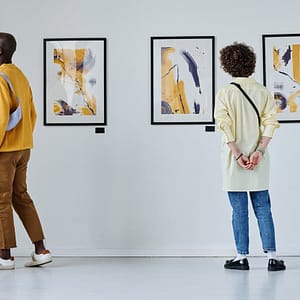Navigating Multilingual Landscapes: Insights from the APGA Translation Webinar
Navigating multilingual communication is vital for botanical gardens aiming to connect with their diverse visitor base. The American Public Gardens Association recently hosted a webinar, “Say What? Multilingual Best Practices at Public Gardens,” offering practical, actionable strategies for creating accessible, engaging experiences for speakers of different languages. Ideal for those seeking to deepen local engagement and inclusivity, this webinar provides the know-how to effectively reach diverse audiences.
Adapting to Community Needs
The webinar kicked off with invaluable insights from Florida’s Naples Botanical Garden. Their approach? Look at the needs of your community. The garden recognized the predominant languages of their visitors (English, Spanish, Haitian Creole) and tailored their offerings to meet community needs. By starting small with maps and signage before advancing to more complex projects like curriculum and family packs, the key message was clear: start small, prioritize accessibility, and expand as needed.
Let’s Chat!
Get in touch to speak with a member of our team.
Strategic Implementation
Next, Denver Botanic Gardens shared their strategies for bilingual content development. The garden’s phased approach began with wayfinding and evolved into a comprehensive signage hierarchy. Denver’s experiences highlighted the benefits of a consistent, inclusive translation style guide and the advantages of an organized language program to manage the rollout of bilingual materials.
Design Challenges and Solutions
Both gardens discussed the design challenge presented by bilingual or multilingual content. Striving for simplicity and equality among languages without compromising design integrity requires creativity. Panelists emphasized the need to consider the languages’ visual impact, seek out the best solutions for each application, and avoid prioritizing one language over another. Above all else, don’t be afraid of trial and error.
Featured Services
Learn more about…
Eriksen Translations: Your Partner in Multilingual Excellence
Our segment focused on the rigorous translation/editing process we employ at Eriksen. We ensure accuracy and relevance by leveraging two native-speaking linguists and encouraging a round of client review by individuals with subject-matter expertise. We offer tips for starting small, choosing the appropriate dialect for inclusivity, and considering text expansion and contraction in translated materials.
Why It Matters
Multilingual content is not just about language—it’s about opening doors to diverse communities and ensuring everyone has access to the rich experiences of botanical gardens and other cultural institutions. The webinar emphasized that challenges can be navigated successfully with thoughtful planning, professional expertise, and a commitment to inclusivity.
We invite you to watch the full APGA webinar here.
Our team at Eriksen stands ready to assist you in bridging language gaps and fostering welcoming, inclusive environments. Reach out to our team to discuss your language needs.
 Named to the 2024 Inc. 5000 list of fastest-growing companies and ranked among the world’s top 100 language service providers by CSA Research
Named to the 2024 Inc. 5000 list of fastest-growing companies and ranked among the world’s top 100 language service providers by CSA Research

